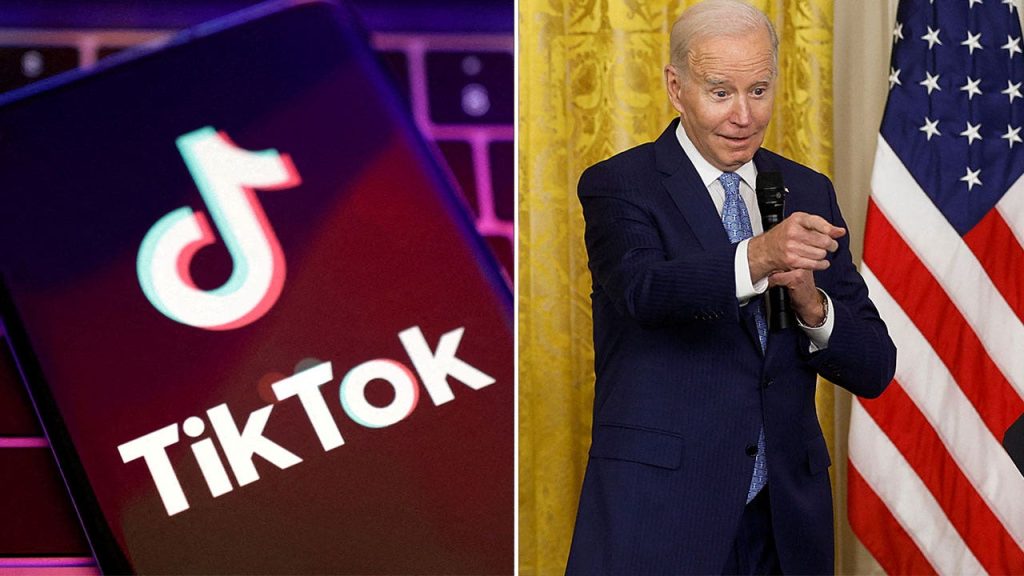Despite President Biden signing a bill into law that would force the China-based parent company of TikTok to sell the platform or face a ban in the United States, the Biden campaign has stated that they will continue to stay on TikTok. The legislation, part of a set of bills providing foreign aid to Ukraine, Israel, and Taiwan, gives ByteDance nine months to sell TikTok, with a possible three-month extension. The bill also prohibits ByteDance from controlling the algorithm that shows users videos based on their interests. Lawmakers have long expressed concerns that Chinese officials could force ByteDance to provide U.S. user data and influence Americans through the platform.
TikTok has responded to the legislation by preparing a lawsuit to block it, calling the law unconstitutional and stating that they will challenge it in court. The company has invested billions of dollars to keep U.S. data safe and the platform free from outside influence and manipulation. TikTok has argued that a ban would have devastating effects on businesses and silence millions of Americans who use the platform to share experiences, find joy, and be inspired. Despite the challenges, TikTok remains committed to investing and innovating to ensure the platform remains a safe space for users.
House Republicans attached the TikTok bill to the foreign aid package, helping expedite its passage after an earlier version of the bill stalled in the Senate. The passage of the legislation comes amid bipartisan fears in Congress over Chinese threats, including the ownership of TikTok. While China has previously stated opposition to forcing the sale of TikTok, TikTok itself has denied being a security threat and has had some success with court challenges in the past. The company has never before attempted to prevent federal legislation from going into effect.
As the Biden campaign commits to remaining on TikTok despite the legislation, other platforms have expressed concerns over Chinese threats and potential influence. Lawmakers and administration officials have raised worries about the ownership of TikTok, with fears that Chinese officials could access U.S. user data and shape content on the platform. TikTok’s parent company ByteDance has been given a timeline to sell the app, with the bill also aiming to prevent the company from controlling the algorithm that determines what content users see. Despite the challenges, TikTok is preparing to challenge the legislation in court, arguing that a ban would have severe consequences for businesses and users across the United States.
TikTok itself has criticized the law as unconstitutional and has vowed to challenge it in court, maintaining that they believe the facts and the law are on their side. They argue that the platform has been designed to keep U.S. data safe and free from external influence or manipulation. TikTok has emphasized its commitment to providing a safe space for users to share experiences, find joy, and be inspired. While the legal battle continues, TikTok remains focused on investing and innovating to ensure the platform remains a positive environment for its millions of American users.
The controversy surrounding TikTok and its parent company ByteDance highlights broader concerns over Chinese threats and influence. Lawmakers in Congress have long raised issues about the ownership of TikTok and the potential risks it poses to U.S. national security. Despite ongoing challenges and legal battles, TikTok remains committed to defending its platform and ensuring that it remains a safe and welcoming space for users to engage with content, share experiences, and connect with others. As the debate over TikTok continues, the company’s determination to challenge the legislation in court reflects its commitment to protecting the interests of its users and maintaining its presence in the United States.


